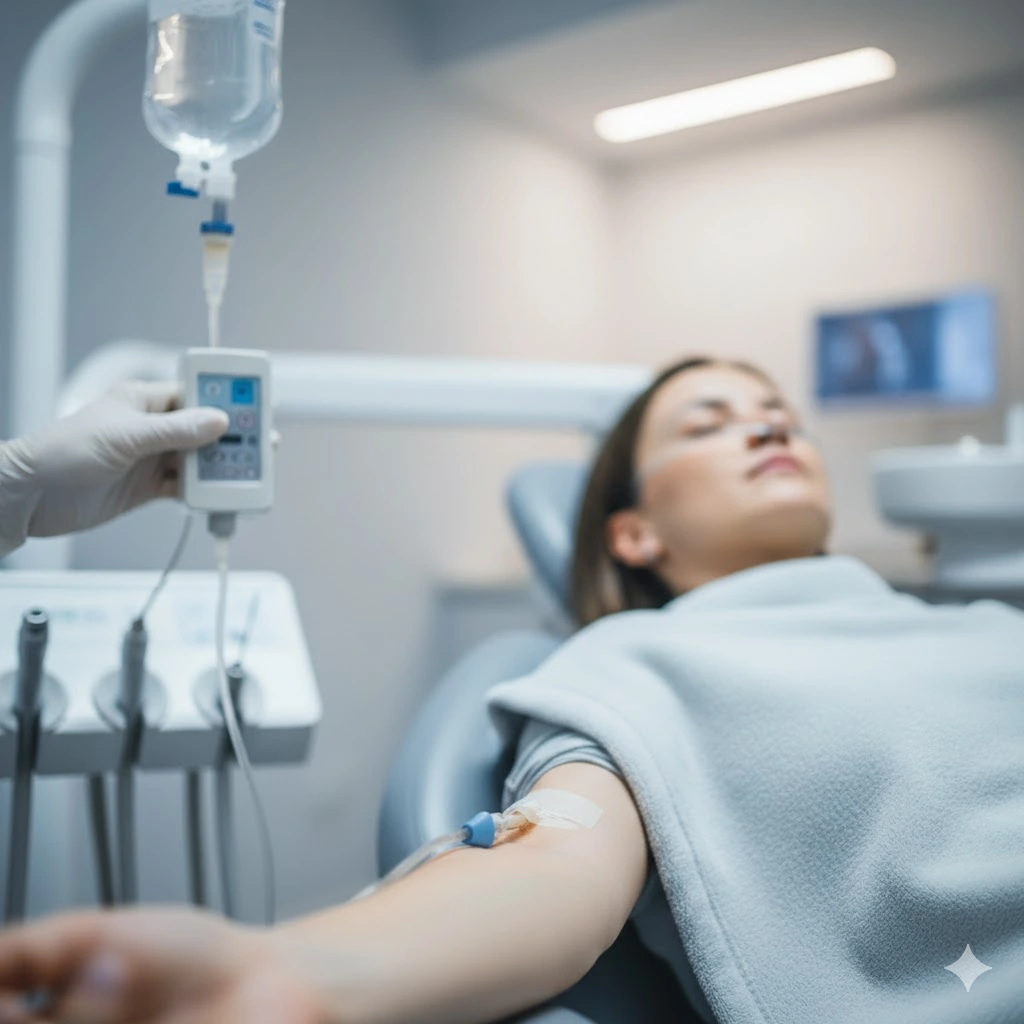KISSIMMEE ORAL SURGERY
Post-Op: Dental Implant Surgery in Kissimmee, FL
Post-Operative Instructions for a Smooth and Safe Recovery


Post-Op Care: Dental Implants
Everything You Need to Know for a Safe and Successful Recovery
Follow these detailed instructions to support healing, reduce discomfort, and protect your implant investment.
- Do not disturb the wound on the day of surgery.Avoid rinsing, spitting, or touching the area.You may notice a metal healing abutment protruding through the gum—this is normal.
- Slight bleeding or pink-tinged saliva is normal for the first 24 hours.If bleeding becomes excessive (mouth fills with blood), bite firmly on a gauze pad for 30 minutes.If bleeding continues, call our office for further instructions.
- Swelling is expected and can be minimized by applying ice packs to the cheek near the surgical area.Use ice as much as possible for the first 36 hours.
- Stay hydrated and drink plenty of fluids.Avoid hot foods or drinks.Stick to soft foods and liquids on the day of surgery.Gradually return to a normal diet as tolerated, unless otherwise directed.
- Begin taking pain medication as soon as the local anesthetic wears off.Take Tylenol and/or ibuprofen as instructed by our doctors if you do not have allergies to these types of medications.For severe pain, take prescribed medication as directed.You must take your antibiotics as instructed until finished to avoid post operative infections/complications
- Do not wear partial dentures, flippers, or full dentures immediately after surgery.Avoid use for at least 10 days, unless otherwise instructed.
- Begin rinsing with Peridex Oral Rinse the night of surgery.Continue using it twice daily (after breakfast and before bed).Use warm saltwater rinses (1 tsp salt in 1 cup of warm water) 4–5 times daily, especially after meals.Brush your teeth gently, including the healing abutments—avoid brushing directly on the surgical site at first.
- Limit physical activity in the first 48 hours.If you experience throbbing or bleeding, stop exercising and rest.Lack of proper nutrition may make you feel weak—listen to your body.
Your Healing Is Our Priority
We're Just a Phone Call Away
If you have any questions about your recovery or experience unusual symptoms, please contact our office. Our team is here to ensure your comfort and help you achieve the best possible outcome.
Take the First Step Toward a Healthier Smile
At Kissimmee Oral Surgery, your comfort, safety, and oral health are our top priorities. Whether you need expert surgical care, advanced dental solutions, or compassionate guidance, our team is here to help.

Connect
Get in Touch
We’re here to assist you with your inquiries.

